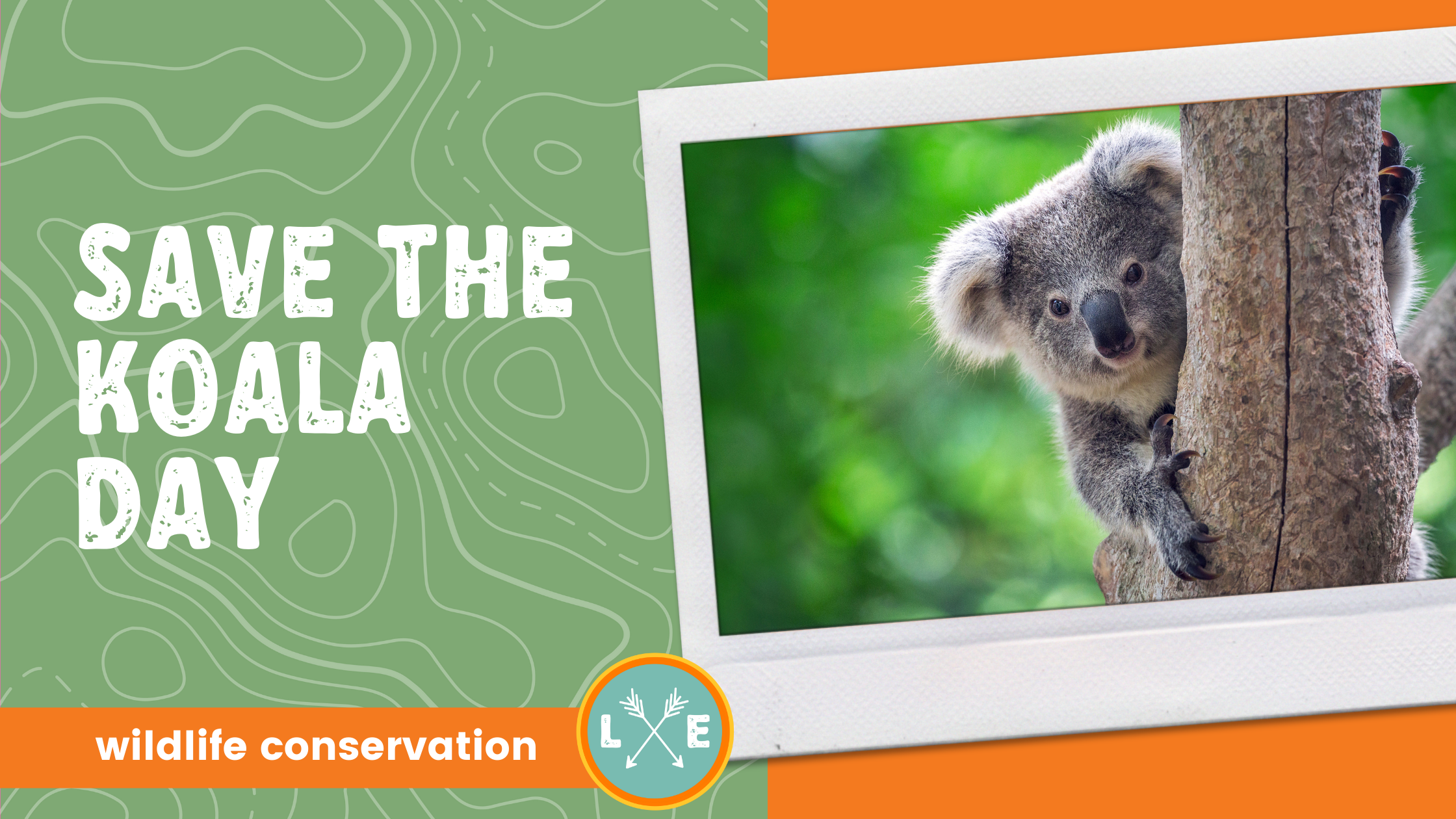Save the Koala Day
Today is Save the Koala Day!
Koalas are a type of mammal called marsupials. They are so different from any other marsupial, however, that they have been classified into their own family, called Phascolarctidae! They share a number of characteristics with wombats, who are their closest living relatives, including a backward-facing pouch. Koalas are an iconic species native only to Australia, and they are one of the 10 species worldwide most at risk from climate change. In April 2012, the Australian Government declared the Koala as ‘vulnerable’ under the Federal EPBC Act in New South Wales, the Act and Queensland. The Australian Koala Foundation estimates that there are less than 100,000 Koalas left in the wild, possibly as few as 43,000. There are four Australian states where Koalas occur in the wild—Queensland, New South Wales, Victoria and South Australia.
What is threatening the Koalas?
Wild koalas are an indicator species, showing the health (or lack thereof) of the ecosystems upon which they depend on. They tend to live over a range of open forest and woodland communities but ultimately their habitat is defined by the presence of a select group of food trees. Koalas eat a variety of eucalypt leaves and a few other related tree species, including lophostemon, melaleuca and corymbia species (such as brush box, paperbark and bloodwood trees). Koalas are found in higher densities where food trees are growing on more fertile soils and along watercourses. They do, however, remain in areas where their habitat has been partially cleared and in urban areas.
Koalas are in serious decline suffering from the effects of habitat destruction, domestic dog attacks, bushfires and road accidents. Since Europeans first settled in Australia in 1788, Australia’s eucalyptus forests have been vanishing at an alarming rate. Much of the koala's habitat in Queensland overlaps with areas where significant clearing has occurred, and continues to occur, for urban, industrial and rural development. More than four fifths of original Koala habitat has been destroyed. This makes it very important that we save what is left.
As habitat patches become smaller and more fragmented, koalas are more likely to move through developed areas. In developed areas, koalas have to cross roads and move through properties where they may be attacked by dogs or drown in backyard swimming pools.
After habitat clearing, the most serious threat to koalas is death from car hits. In South East Queensland, an average of almost 300 koalas are killed each year by motor vehicles, based on wildlife hospital records in the period 1997 to early 2011.
How can you help the Koalas?
Saving the Koala, or any animal or ecosystem begins with each individual person. Everyone, no matter how small, can do something to help.
Here are some ways you can help:
Support the Koala Protection Act by writing to a politician
Join the Australian Koala Foundation’s Koala Army
Donate to the Australian Koala Foundation
Join a Koala Charity
Lastly, if you live in a Koala area, consider planting Koala food trees.
Some fun facts about Koalas:
Koalas have fingerprints - they’re the only animals other than primates that have them!
Koalas smell like eucalyptus.
Koalas are picky eaters.
Koalas sleep 18 hours every day!

